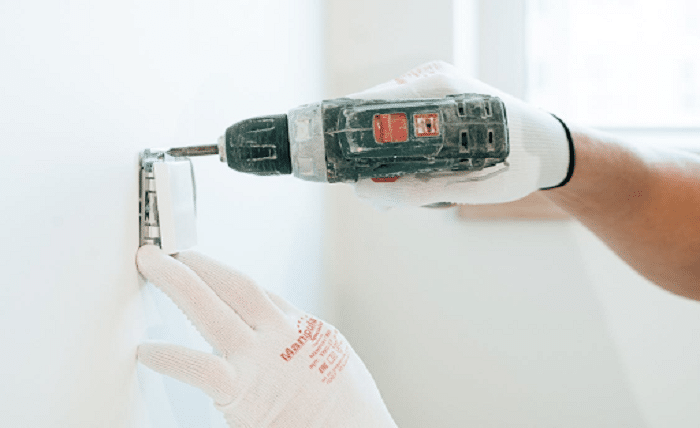How to Avoid Overloading Electrical Outlets in Singapore Homes

Electrical safety is a critical aspect of modern living, yet it’s often overlooked in many Singaporean homes. With the growing number of electronic devices and appliances, overloading electrical outlets has become a common issue. This can lead to short circuits, tripped circuit breakers, or even electrical fires. Here’s a comprehensive guide tailored to Singaporean households to help you prevent overloading outlets and ensure your home remains safe and efficient.
1. Know Your Outlet’s Capacity
In Singapore, electrical outlets are generally designed to handle up to 13 amps of power. This means plugging in devices that collectively exceed this limit can lead to overheating and potential hazards. If you’re unsure about your outlet’s capacity or need professional advice, consider consulting an Electrician Singapore to assess your electrical setup and ensure it’s safe for your household needs.
What to Keep in Mind:
- Understand appliance power ratings: Check the wattage (W) or amperage (A) of each device. Most appliances have this information printed on a label or in their user manual.
- Calculate the total load: Add up the power consumption of all devices plugged into a single outlet. If the total exceeds the outlet’s capacity, redistribute the load.
For instance, plugging in a microwave and a rice cooker into the same outlet can easily surpass the 13-amp limit, as both are high-energy appliances.
2. Use Power Strips and Extension Cords Wisely
Power strips and extension cords are convenient for plugging in multiple devices but can create risks if misused.
Tips for Safe Usage:
- Opt for high-quality power strips: Choose ones with surge protection to safeguard your devices against power spikes, especially during thunderstorms—a common occurrence in Singapore.
- Avoid daisy-chaining: Plugging one power strip into another can double the load on a single outlet, increasing the risk of overheating.
- Match the device to the power source: High-energy devices like refrigerators or kettles should always be plugged directly into a wall outlet instead of a power strip.
3. Spread the Load Across Multiple Outlets
Singapore homes are designed with ample electrical outlets to accommodate various appliances. However, many households tend to rely on a few key outlets, leading to overloading.
How to Distribute Safely:
- Identify high-energy appliances: Devices such as air conditioners, washing machines, and ovens should each have dedicated outlets.
- Rotate usage of smaller appliances: If you’re using several smaller gadgets, like phone chargers and table lamps, spread them across different outlets.
- Avoid over-reliance on extension cords: Extension cords should only be used temporarily and never for heavy-duty appliances.
4. Regularly Inspect Your Outlets and Appliances
Routine checks can help you identify and resolve potential electrical hazards before they escalate.
What to Look For:
- Physical damage: Cracked outlet covers, exposed wires, or scorched marks are signs of trouble.
- Heat or smell: Outlets that feel hot or emit a burning smell indicate an overloaded circuit or faulty wiring.
- Buzzing sounds: These can suggest loose connections or internal damage.
If you notice any of these signs, unplug all devices and contact a licensed electrician in Singapore immediately.
5. Unplug Devices When Not in Use
In a fast-paced city like Singapore, it’s easy to forget about devices that remain plugged in but are not actively used. This contributes to unnecessary load and wasted energy.
Benefits of Unplugging:
- Reduces the risk of overload: Every plugged-in device adds to the cumulative load, even in standby mode.
- Lowers electricity bills: Unplugging saves energy and cuts down on costs—a small but meaningful step given Singapore’s rising utility rates.
- Prevents wear and tear: Continuous electrical flow can shorten the lifespan of appliances.
Make it a habit to unplug items like phone chargers, toasters, and hairdryers after use.
6. Upgrade Your Electrical System if Needed
Singapore’s older HDB flats and homes may not be equipped to handle the power demands of today’s households, which rely heavily on appliances like air purifiers, smart TVs, and gaming consoles.
Signs It’s Time for an Upgrade:
- Frequent tripping of circuit breakers, especially during peak usage hours.
- Not enough outlets, leading to over-reliance on extension cords and adapters.
- Flickering lights when using multiple appliances.
Engage a certified electrician to assess your home’s electrical system and recommend upgrades, such as adding more outlets or installing a higher-capacity circuit breaker.
7. Educate Your Family Members
Electrical safety is a shared responsibility. Educating everyone in your household—including domestic helpers and children—can go a long way in preventing accidents.
Key Lessons to Share:
- Avoid plugging too many devices into one outlet.
- Report any unusual smells, sparks, or sounds from outlets immediately.
- Teach children to handle plugs safely and keep water away from electrical appliances.
Simple awareness can significantly reduce risks and help maintain a safer home environment.
Why Electrical Safety Matters in Singapore
Singapore’s high humidity and frequent thunderstorms create unique challenges for electrical systems. Overloaded outlets increase the risk of electrical fires, which can spread quickly in high-rise residential buildings.
Additionally, the Land Transport Authority (LTA) and Energy Market Authority (EMA) frequently emphasize the importance of electrical safety in their guidelines. Staying proactive not only protects your family but also ensures compliance with national safety standards.
Conclusion
Overloading electrical outlets is an avoidable hazard that requires mindful usage and regular maintenance. By understanding outlet capacities, using power strips wisely, and distributing loads efficiently, Singaporean homeowners can create safer living environments.
When in doubt, always consult a licensed electrician to evaluate your home’s electrical system. Being proactive today can prevent costly repairs or accidents in the future.




